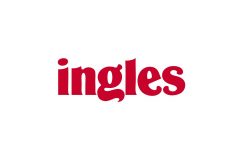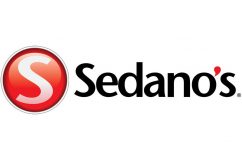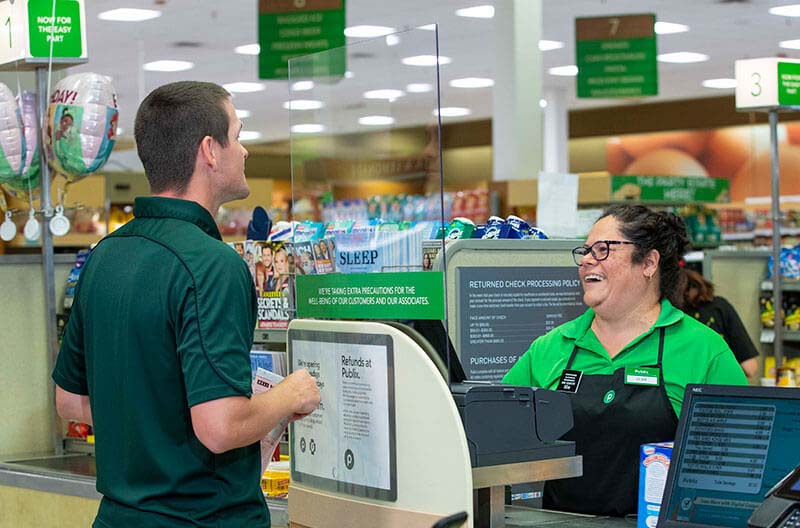Grocery retailers across the nation are on the front lines of the battle against Covid-19. Keeping customers and employees safe is a top priority, and many are thanking their employees for the selfless hard work with bonuses and other benefits. In the Southeast, Ingles Markets is hiring more associates and giving an appreciation bonus to its associates; Publix is offering contactless pay options to its customers and Sedano’s is adding new safety measures to its stores. And the Georgia Food Industry Association (GFIA) is updating its members on the shelter-at-home executive order issued by Gov. Brian Kemp, as well as guidelines for essential businesses to follow to keep their empolyees safe.
Ingles Markets to hire associates, offer enhanced leave, pay appreciation bonus
Asheville, North Carolina-based Ingles Markets Inc. reports its most recent efforts to recognize and support associates during the Covid-19 crisis.
“During the Covid-19 crisis, the safety of our customers and our associates is our highest priority. We understand our important role in providing food, medicine and other products to our customers. We are incredibly proud of how our associates have stepped up to the challenge to serve our local communities during this difficult time,” said Robert P. Ingle II, chairman of the board.
To ensure its stores and distribution center have the support they need, Ingles currently is hiring more than 5,000 additional associates. This will provide some relief to current associates and allow the company to continue to focus on serving its customers while maintaining its enhanced cleaning standards. To learn more about job opportunities, visit inglescareers.com.
Ingles also has implemented a paid, two-week Covid-19 leave program for associates who test positive. In addition, it has modified its sick pay policy and enhanced its medical plan to provide covered members with additional benefits.
Ingles Markets will provide a one-time bonus payment of $300 to full-time and $150 to part-time active retail, distribution and corporate associates who were hired prior to March 1. The bonus payment will be made on or before April 23.
“Our hard-working associates are truly heroes. We are proud of their dedication and support during this unprecedented time,” Ingle said.
Ingles Markets is a leading supermarket chain with operations in six southeastern states. The company operates 198 supermarkets.
Publix now offers contactless pay options for customers
Lakeland, Florida-based Publix says it’s rolling out contactless pay to all its stores, including GreenWise Market. The rollout was expected to be completed by Saturday, April 4. This is one more measure Publix is taking to protect the health and well-being of its customers and associates during the coronavirus pandemic.
A contactless payment is made by placing a smartphone or contactless pay-enabled credit or debit card near a contactless-enabled device, rather than swiping or inserting a card into the PIN pad. The most commonly known forms of contactless payments are Apple Pay, Google Pay and Samsung Pay.
This digital payment method will be in addition to the existing mobile pay option through the Publix app, which customers can still use to finalize their purchases.
“In these unprecedented times, we recognized the need to make our customers’ trips to our stores faster and more efficient,” said Publix CEO Todd Jones. “By expediting this payment option, we will help customers reduce contact with commonly used surfaces like PIN pads.”
Publix continues to find ways to support its communities and help its associates while keeping their health and well-being top of mind. Publix has increased sanitization efforts through frequent and regular cleaning of high-touch surfaces like carts, door handles, PIN pads, ATMs and vending machines; started installing plexiglass shields at all cash registers, pharmacies and customer service counters; suspended product and recipe sampling, including the free cookie program, as well as Aprons Cooking School classes; relocated high-touch condiments that are not single-use items, such as creamer carafes and squeeze bottles, behind the service counter in stores with cafés; reduced store hours to allow extra time for store cleaning and preventive sanitation; designated shopping hours for customers ages 65 and over to better support the senior population; installed signs, marked distances on the floor where customers line up and initiated intercom announcements to remind customers to maintain the recommended 6-foot distance between themselves and other shoppers; and provided store associates in non-food handling roles, such as cashiers, baggers and pharmacy clerks, the option to wear gloves and masks and
implemented emergency pandemic pay for full- and part-time associates who show symptoms of, are diagnosed with, are caring for someone diagnosed with or are self-quarantined due to Covid-19.
Publix is privately owned and operated by its more than 200,000 employees and currently operates 1,242 stores in Florida, Georgia, Alabama, Tennessee, South Carolina, North Carolina and Virginia.
Sedano’s adds new measures to make shopping safer
Miami, Florida-based Sedano’s Supermarkets has added new measures to ensure a safer shopping experience for its associates and customers.
In addition to reinforcing heightened cleaning and sanitation procedures across all stores, abiding by the Centers for Disease Control and Prevention (CDC) and following local protocols, Sedano’s has taken the following actions:
- Installed plexiglass barriers at checkout stations within all stores for the safety of our cashiers and customers.
- Added signage and floor decals to remind customers to keep their distance (two carts apart).
- Updated in-store voice announcements at all stores to remind and encourage everyone to practice social distancing.
- Created an additional sanitation team dedicated solely to “high-touch” areas in all stores. The company also has provided safety gear, such as gloves and masks, to employees to ensure they are safe and feel comfortable while at work.
Additionally, it has dedicated the 7-8 a.m. hour across all of its stores to serving those clients who are 65 and older, and the immunocompromised members of its communities.
Georgia governor issues executive order
The Georgia Food Industry Association (GFIA) has reported Gov. Brian Kemp issued a shelter-in-place order for residents through April 13. GFIA says it is too early to speculate where or not there will be an extension after that date.
The Governor’s Office also issued a guidance document that gives more explanation to the executive order. The comprehensive nine-page order overrides all local Covid-19 ordinances in the state, GFIA says.
Because the grocery industry is considered critical infrastructure, GFIA says its member businesses may remain open. However, there are a few new stipulations:
Critical Infrastructure that continues in-person operation during the effective dates of this order shall implement measures which mitigate the exposure and spread of Covid-19 among its workforce. Such measures may include, but shall not be limited to:
- Screening and evaluating workers who exhibit signs of illness, such as a fever over 100.4 degrees Fahrenheit, cough or shortness of breath;
- Requiring workers who exhibit signs of illness to not report to work or to seek medical attention;
- Enhancing sanitation of the workplace as appropriate;
- Requiring hand washing or sanitation by workers at appropriate places within the business location;
- Providing personal protective equipment as available and appropriate to the function and location of the worker within the business location;
- Prohibiting gatherings of workers during working hours;
- Permitting workers to take breaks and lunch outside, in their office or personal work space, or in such other areas where proper social distancing is attainable;
- Implementing teleworking for all possible workers;
- Implementing staggered shifts for all possible workers;
- Holding all meetings and conferences virtually, wherever possible;
- Delivering intangible services remotely wherever possible;
- Discouraging workers from using other workers’ phones, desks, offices or other work tools and equipment;
- Providing disinfectant and sanitation products for workers to clean their workspace, equipment and tools;
- Prohibiting handshaking and other unnecessary person-to-person contact in the workplace;
- Placing notices that encourage hand hygiene at the entrance to the workplace and in other workplace areas where they are likely to be seen; and
- Suspending the use of Personal Identification Number (“PIN”) pads, PIN entry devices, electronic signature capture and any other credit card receipt signature requirements to the extent such suspension is permitted by agreements with credit card companies and credit agencies.

